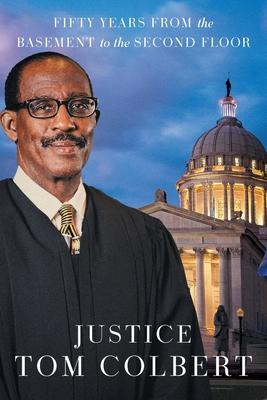
Born on December 30, 1949, Tom was raised by his mother and grandparents in Sapulpa, Oklahoma, when segregation laws were in effect. In fact, a few days after Tom was born, Ada Lois Sipuel Fisher had just started her second semester as a law student at the University of Oklahoma Law School after fighting for three years to be admitted there, refusing to attend the makeshift "Black-only" law school set up in the basement of the State Capitol. Though racial segregation was deemed unconstitutional in 1954, integration was intentionally delayed in Tom's town, and he didn't attend an integrated school until the fall of 1965. Although some teachers at his high school were welcoming, many staff and students were not, and Tom and his friends experienced racism, bigotry, and hatred, despite being star athletes and diligent students.
Though he grew up in poverty and a world entrenched in systemic racism as well as dealt with family tragedies, Tom beat impossible odds, proving the naysayers of his youth wrong. He not only worked hard and became an outstanding lawyer, but reached the pinnacle of judiciary-and became the first Black man in Oklahoma to do so. Just like Ada Lois Sipuel Fisher, Tom refused the "basement," and that noble resistance led him all the way to the second floor of the Oklahoma State Capitol.
Born on December 30, 1949, Tom was raised by his mother and grandparents in Sapulpa, Oklahoma, when segregation laws were in effect. In fact, a few days after Tom was born, Ada Lois Sipuel Fisher had just started her second semester as a law student at the University of Oklahoma Law School after fighting for three years to be admitted there, refusing to attend the makeshift "Black-only" law school set up in the basement of the State Capitol. Though racial segregation was deemed unconstitutional in 1954, integration was intentionally delayed in Tom's town, and he didn't attend an integrated school until the fall of 1965. Although some teachers at his high school were welcoming, many staff and students were not, and Tom and his friends experienced racism, bigotry, and hatred, despite being star athletes and diligent students.
Though he grew up in poverty and a world entrenched in systemic racism as well as dealt with family tragedies, Tom beat impossible odds, proving the naysayers of his youth wrong. He not only worked hard and became an outstanding lawyer, but reached the pinnacle of judiciary-and became the first Black man in Oklahoma to do so. Just like Ada Lois Sipuel Fisher, Tom refused the "basement," and that noble resistance led him all the way to the second floor of the Oklahoma State Capitol.
Paperback
$23.99